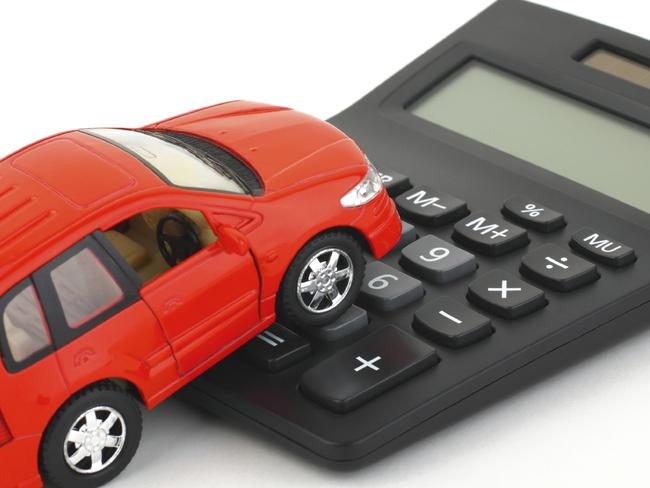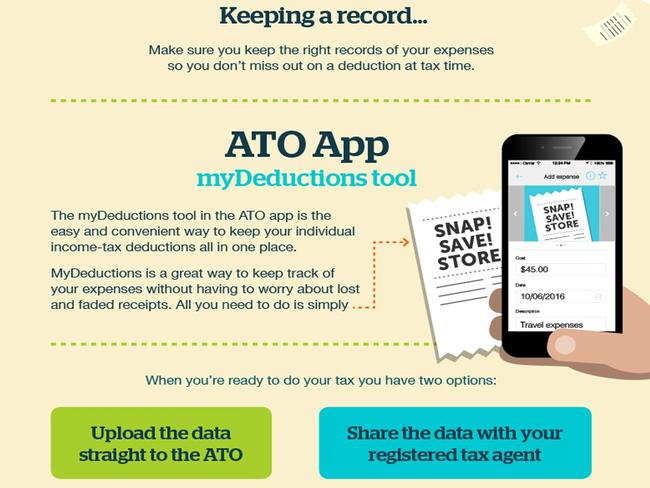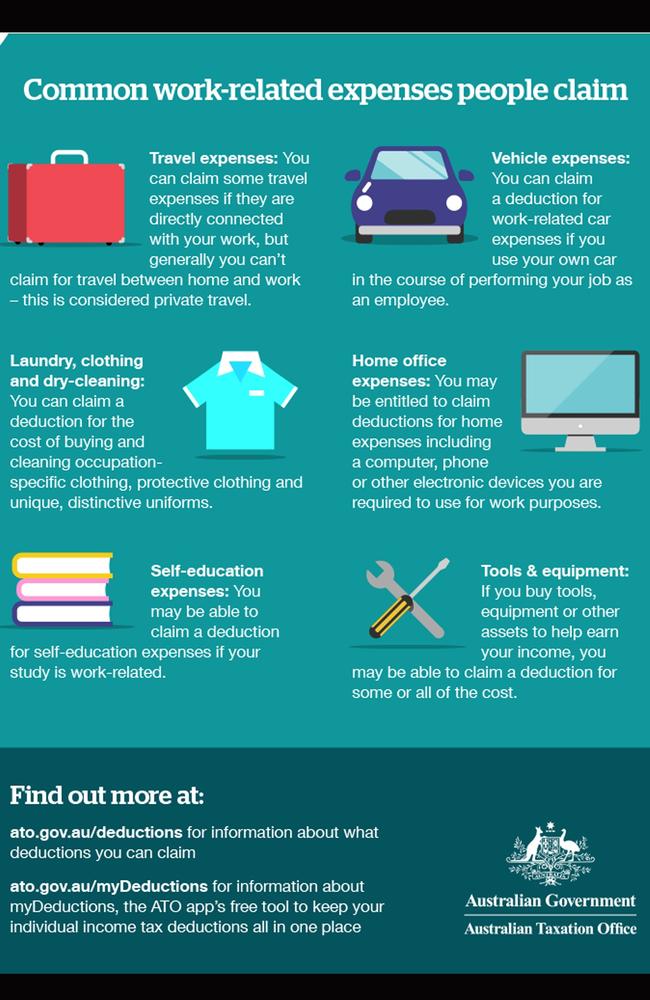Tax hit list: Expenses under the spotlight
BE VERY careful when you do your taxes this year, because the ATO is determined to stop you from claiming those sneaky deductions.
IF YOU are thinking about claiming your phone and internet, you’d better make your deductions list and check it twice, because the tax man will be watching you.
And while it may seem fine to claim your car and travel expenses, just know that the tax man will want to see proof.
These examples are on the hit list being targeted by the Australian Taxation Office this year. The ATO has warned people to keep receipts and ensure their deductions are legit.
Speaking to news.com.au, ATO assistant commissioner Graham Whyte said people were entitled to claim what they were owed, but no less or no more.
Along with travel, phone, internet and car use, Mr Whyte said self-education expenses were also on the hit list.
However, while he stressed these deductions would be monitored closely, the tax office’s message wasn’t about catching people but rather warning them to claim properly in the first place.
Mr Whyte said he knew the rules surrounding what people could claim were confusing but the ATO had easily accessible guidelines available online.
“Generally speaking, if you claim a deduction you need to remember the three golden rules,” he said.

“One, make sure you spent the money yourself and were not reimbursed. Two, make sure it’s related to your job and three, you need a record to prove it.”
So that means that designer handbag is OK right?
Well sort of.
According to Mr Whyte so long as you can prove it’s a work-related expense and need it for your job go for it.
In other words a tiny bag won’t fly but you’ve got more chance of deducting a bag if it fits your laptop in it.
But if you’re really in doubt check with your accountant.
He said certain expenses were under the spotlight this year as rules had changed and the ATO would be checking up on those deductions.
For example there were changes in calculating car expenses this year and people must use a logbook or the cents per kilometre method to support their claims.
“It’s important to remember that you can only claim a deduction for work-related car expenses if you use your own car in the course of performing your job as an employee,” he said.
This doesn’t include travel to and from work.
“If your claims are substantially higher than others in similar occupations, earning similar amounts of income, a message will appear, asking you to check them,” Mr Whyte said.
He said new sophisticated technology would alert the ATO officers checking them if anything stood out, which is why receipts were vital.

“The ATO will take a closer look at any unusual deductions and contact employers to validate these claims, so it’s worth getting things right at the start,” he said.
In other words, if you really do need your mobile phone 90 per cent of the time for work, then don’t be surprised if the ATO calls your boss and checks it is a necessity.
If they say no, then you will be caught out. It’s a good idea to keep a log book for this too, detailing how often you need it for work.
WARNING BELLS
The ATO checks every claim using sophisticated analytic software to spot claims considered to be outside the norm.
It has warned that those found deliberately misleading claims or inflating deductions will get caught.
Those found to be at fault not only face fines, potentially big ones, and in more extreme cases prosecution.
In one case last year, an insurance broker claimed work-related expenses of more than $65,000 in his tax returns.

Not only did he claim car expenses but also entertaining clients but failed to provide receipts and some of those that were issued were for weekends with family, school fees and even school supplies.
His claims were reduced and he was also penalised for making false statements in his returns and found liable for tax, penalties and interest of more than $75,000.
On another occasion a real estate agent claimed work-related motor vehicle and work-related clothing, laundry and dry-cleaning expenses and provided false tax invoices.
He was prosecuted and fined $4000.
Mr Whyte said it simply wasn’t worth the risk and anyone wondering what definitely could be claimed and how much could check the ATO website.
“Ultimately we want people to avoid that which is why are making this information available to them,” he said.
“But if people do make an honest mistake they have nothing to fear.”
People are assessed on a case-by-case basis and if you think you have made a mistake alert the ATO straight away.
Quiz: How well do you know your expenses? Click here to find out





